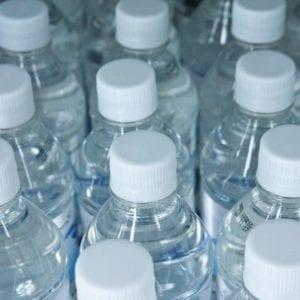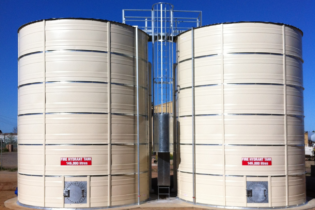New data compiled by Beverage Marketing Corp. (BMC), New York, shows that between 2000 and 2014 the average weight of a 16.9-ounce (half-liter) single-serve polyethylene terephthalate (PET) bottle of water has declined 52% to 9.25 grams. This has resulted in a savings of 2.8-billion kilograms of PET resin since 2000, the organisation says.
In addition to becoming lighter, water bottles also incorporate more recycled content than in the past. BMC reports that between 2008 and 2014, the use of recycled PET (rPET) in bottled water packaging increased by 17.5% to 21%. In fact, last year alone, rPET use increased by 8%. For companies that use rPET, the average rPET content is 20% per container, BMC says. “While more and more consumers choose bottled water instead of less healthy packaged drinks, our industry continues its efforts to reduce our environmental footprint. In fact, PET plastic bottled water bottles use less plastic than any other packaged beverage,” says Chris Hogan, vice president of communications for the International Bottled Water Association (IBWA), based in Alexandria, Virginia in the USA. Bottled water on the rise According to BMC, bottled water is poised to become the largest beverage category, by volume, in the United States by the end of the decade.All bottled water containers are 100% recyclable.
“From an environmental standpoint, when people choose bottled water instead of any other canned or bottled beverage, they are choosing less packaging, less energy consumption and less use of natural resources,” Hogan says. “What’s more, recycling the bottle can cut that impact by an additional 50%, if it is reused to replace virgin PET plastic.” To encourage a comprehensive approach to effective recycling, IBWA developed its Material Recovery Program (MRP), a collaborative joint venture between businesses and government in the US. The MRP supports the development of new, comprehensive solutions to help manage solid waste in U.S. communities by having all consumer product companies, including bottled water, work together with state and local governments to improve recycling and waste education and collection efforts for all packaged goods. Source: Recycling Today






